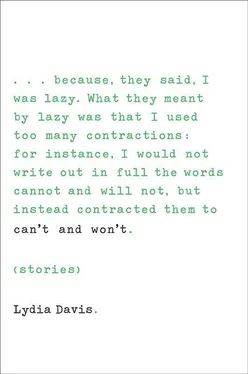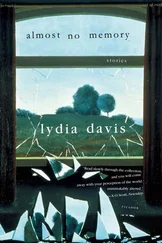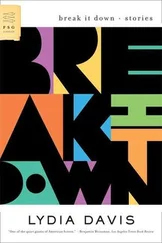Then there was that little green stuffed elephant with sequins, from India, quite pretty. With two little cords on it, to hang it up somewhere. I hung it in a window and the green material on one side of it faded after a while in the sunlight. And a thing made of felt, with pockets, to hang on the back of a door and put things in — I’m not sure what. It had elephants on it, too, embroidered on the felt.
Now I remember — she would get these things at special handicraft fairs to benefit some organization of indigenous people. That was part of her kindness, and her conscientiousness, and part of the reason the things were a little odd and sometimes a strange match for us.
So there was always the excitement of her package arriving in the mail. The coarse brown paper a little battered from the trip overseas. The brown paper was even more exciting than the wrappings inside, because it was so drab, yet you knew that inside there would be that explosion of little packages, each wrapped in bright colored paper.
She chose my presents with me in mind, I think, but twisting the facts a little, in an optimistic sort of way, thinking I would find this thing useful or decorative. I think a lot of people, when they pick out a gift, twist the facts optimistically. But I’m not saying I’m against people trying out a different kind of gift on someone, and I’m certainly not against those handicraft fairs. Now that a few years have gone by, and I’ve changed, too, I would buy my gifts at a handicraft fair. I would do it at least in her memory.
She wouldn’t spend a lot of money on a gift. That was her conscience. She wouldn’t spend a lot on herself, either. I also believe that deep down, she probably didn’t think she deserved any better.
But she spent a lot on us at other times. Her gifts then would come out of the blue. Once, she wrote to me and asked if I wanted to go on a skiing trip in the mountains with her and the children. It was early spring and the snow was melting in muddy patches on the slopes. We skied on what snow there was. I sometimes went off on long walks. She thought I shouldn’t go by myself — if something happened to me, I would be alone and without help. But she could not forbid me to go, so I went. On the paths I took, in fact, there were many people hiking up and down, passing one another with a friendly greeting.
Years later, when I was long past the age when I should have needed any help from her, she bought me my first computer. I could have refused, but I still did not have much money. And there was something exciting about her sudden offer one afternoon, over the phone. It was late in the evening where she was. Her offer was an enveloping burst of generosity, I wanted to sink into it and stay inside it. Yes, she said, yes, she insisted, she would send me the money. The next day she called again, a little calmer — she wanted to help, she would send me some money, but not the whole amount, which was a lot in those days. I know how it must have been — late in the evening, she was thinking of me, and missing me, and the feeling grew in her and turned into a desire to do something for me, even something dramatic.
Starting at about that time, she would rent a house for us each summer, or at least pay for most of it, a house at the beach, for a week or two, a different one each year, and we would all go there and be there together. The last time we did this was the last year of my father’s life, though he didn’t come to the beach house — we left him behind in the nursing home. The next summer, he was gone, and she was gone, too.
* * *
Nearly to Philadelphia — rounding the bend, by the river, there are the boathouses on the other side, that big museum on the cliff across the water, like a building from ancient Greece. I won’t see the station this time — its high ceiling and long wooden benches and archways and preserved old signs. I could just stand there looking at it for a while, the deep space of it — I do, now and then, if I have time. Our own Penn Station was even grander. It’s gone now — that always hurts to think about. And then when you’re walking around there in that underground concourse, killing time before your train, you keep passing the photos they put up on the columns, of the old Penn Station, the long shafts of sunlight falling through the tall windows down the flights of marble stairs. As if they want to remind us of what we’re missing — strange.
Then we’ll be passing through Amish country. I never remember to watch for it, it always takes me by surprise. In the spring, the teams of mules and horses plowing the sloping fields up to the horizon — none of that today. The wash on the lines — maybe. It’s cloudy, but dry and windy. What was that I read about salting your wash in winter? Anyway, it’s not freezing today. A warm winter.
* * *
Again and again, she tried to pay our brother’s way over, to go visit her. He never went. He never said why. He finally went when she was dying, when she didn’t know it, it was too late for her to have that satisfaction — that at last he had agreed to come. He stayed there until the end. When he was not with her, he walked around the city. He took care of some of the practical things that had to be done. Then he stayed on for the funeral. I did not go over for the funeral. I had good reasons, to me they seemed good, anyway, having to do with our old mother, and the shock of it, and how far away it was, across the ocean. Really, it had more to do with the strangers who would be at the funeral, and the tenderness of my own feelings, which I did not want to share with strangers.
I could share her when she was alive. When she was alive, her presence was endless, time with her was endless, time was endless. Our mother was very old already, and when we children stopped to think about how long we might live, we thought we would live to be just as old. Then, suddenly, there was that strange problem with her vision, which turned out to be a problem not with her vision but in her brain, and then, without warning, the bleeding and the coma, and the doctors announcing that she did not have long to live.
Once she was gone, every memory was suddenly precious, even the bad ones, even the times I was irritated with her, or she was irritated with me. Then it seemed a luxury to be irritated.
I did not want to share her, I did not want to hear a stranger say something about her, a minister in front of the congregation, or a friend of hers who would see her in a different way. To stay with her, in my mind, to remain with her, was not easy, since it was all in my mind, since she wasn’t really there, and for that, it had to be just the two of us, no one else. There would have been strangers at the funeral, people she knew but I didn’t know, or people I knew but didn’t like, people who had cared about her or had not cared about her but thought they should attend the funeral. But now I’m sorry, or rather, I’m sorry I couldn’t have done both — gone to the funeral and also stayed home to be with our mother and nurse my own grief and my own memories.
Suddenly, after she was gone, things of hers became more valuable than they had been before — her letters, of course, though there weren’t many of them, but also things she had left behind in my house after her last visit, like her jacket, a dark blue windbreaker with some logo on it. A detective novel I tried to read and couldn’t. A tub of frozen clams in the freezer, and a jar of tartar sauce, marked down, in the door of the fridge.
* * *
We’re moving pretty fast now. When you slide by it all so quickly, you think you won’t ever have to get bogged down in it again — the traffic, the neighborhoods, the stores, waiting in lines. We’re really speeding. The ride is smooth. Just a little squeaking from some metal part in the car that’s jiggling. We’re all jiggling a little.
Читать дальше












